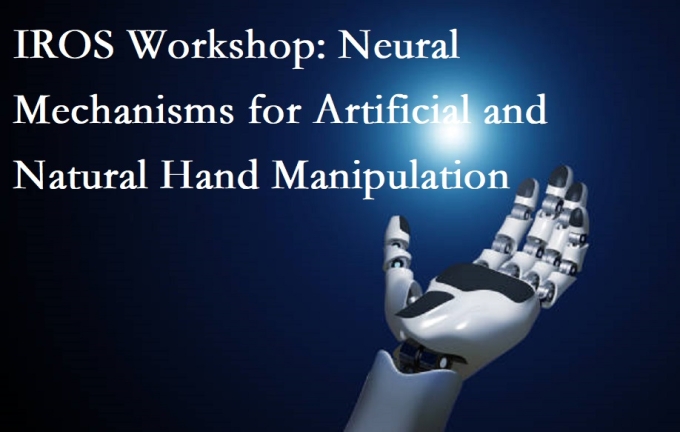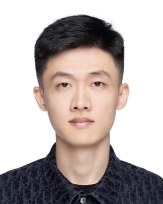
IROS 2025 Workshop: Neural Mechanisms for Artificial and Natural Hand Manipulation
(IROS25 www.iros25.org, the site of manuscript submission is at the end of this page)
Organiser: Zhijun Yang, Dongxu Zhou, Hanwen Zhang, Wenhai Hu
There are evidences showing that hand manipulation of objects with adaptive patterns may be an acquired characteristic possessed by primates and humans. A human infant usually experiences an inept process to learn grasping before becoming fully adaptive to manipulate an object of arbitrary shape. This learning process may start with reflexes reflecting involuntary responses to stimuli. It may involve a complex sequence of activities for sensorimotor integration, synchronization and coordination of cortical neurons and muscles. After the relevant cortical regions are well acquainted with the external world, a human baby is considered as trained and represent a very capable grasp machine in nature. Many theoretical and experimental approaches have been proposed intending to decipher the mechanisms underlying the natural hand manipulation while presenting its artificial intelligence (AI) counterpart, the humanoid dexterous hand. For instance, the finite state machine (FSM) and Hidden Markov Process (HMM), in both deterministic and probabilistic variants, are often used to model the time-sequential hand gesture recognition. Recent years have seen the interest in this area of research growing rapidly, e.g., in end-effector trajectory generation and transition mediated by immitation learning and visual language action (VLA) models, thanks to the advent of powerful computing capacity. On the other hand, new computing paradigms using spiking neural networks have emerged for hand gesture recognition, grasping and prostheses sensory detection. These methods show great potential in mimicking the natural hand operations with its artificial counterparts. However, compared with the rigid objects, humanoid hand manipulation of deformable objects like pieces of cloth are deemed as difficult tasks due partly to the friction and stickiness of different pieces of cloth. The modern technology provides us means of implementing the theoretic models by using high performance computing (HPC) techniques such as dedicated neuromorphic circuits, GPUs, FPGAs as well as deep learning and large language models (LLM). This workshop is timely in terms of its goals of tackling the problems involving robot hand manipulation of any objects, in particular deformables, by using modern technology.
Organisers:




Zhijun Yang Dongxu Zhou Hanwen Zhang Wenhai Hu
Scope and Topics
This workshop brings together the new research works and inspiring ideas from academics and industry related researchers in this prevalent area. The workshop aims to promote the applications of multidisciplinary methods in investigating and exploiting the neural mechanisms of natural hand manipulation of objects, in particular the deformable objects. We invite participation of scientists and engineers, junior and senior, from the broad area of neural control for natural and artificial hand manipulation. The humanoid hand systems, built upon the mechanisms underlying the natural hand systems, are particularly welcome. The topics of interest include, but are not limited to, the following, with focus on the red colored topics.
• Neuroscience studies of natural hand and control
• Kinetics and kinematics models for hand gesture pattern generation and transition
• Central pattern generation models and applications
• Somatosensory system, sensorimotor interaction and impacts on hands
• Machine learning and deep learning methods applicable for controlling hand manipulation
• Neuromorphic hardware implementation, parallel computing platforms using state-of-the-
art hardware such as GPU or FPGA for neural control of hand gesture and manipulation
• Software frameworks, such as robot operating system (ROS), applicable for robot control
• Bayesian inference and hidden Markov models for decision making on robot motion
• Novel finite state machine methods, implementation and applications in robotics
• Haptic sensors for helping humanoid hand manipulation
• Humanoid hand design for prosthesis and rehabilitation
• Digital twin techniques for simulating humanoid hand manipulation
• Impact of humanoid hand and end-effectors in lean production
• Application of humanoid hand in production line for processing rigid/deformable objects
• State-of-the-art robot projects using leading edge hardware and/or software
Important Dates
15 June 2025 Poster Submission Deadline
15 July 2025 Poster Acceptance Notification Date
31 July 2025 Final Poster Submission and Early Registration Deadline
19-24 October 2025 IROS 2025, Hangzhou, China
For more information, e.g., the manuscript format and submission, please refer to the conference official website www.iros25.org.
You can submit your work via easychair site below.
You first need to create an easychair.org account if you do not have one. After log into easychair, clicking on the following link to submit your work.
Structure of Workshop
This is a half-day event, which consists of 3 presentations of 30 mins each, a poster session with 15 ~ 20 posters for 30 mins, a lightning talk session for 5 young engineers or students with 6 mins each, and a brainstorm session with 2 selected topics. The schedule is shown below.
8:30 Opening of the workshop by the organisers: President of Jack Inc R&D Dr Wenhai Hu,
and Managing Director of Jack Inc Innovation Mr Hanwen Zhang.
8:45 Presentation 1 TBC
9:15 Presentation 2 TBC
9:45 Presentation 3 TBC
10:15 Coffee Break
10:30 Poster Session
11:00 Lightning Session
11:30 Brainstorm Session Topic 1: Impact of robot hand and end-effortors in lean production
11:55 Brainstorm Session Topic 2: Using robot hand in mass production of deformable objects
12:20 End of Workshop
Dissemination of Workshop
This workshop will be disseminated by the following means:
• Online broadcasting via mainstream media like Xiaohongshu
• Jack Inc public wechat channel online broadcasting, i.e., Jack Culture
• Inviting online participation of many universities collaborating with Jack Inc, including
Tsinghua Univ, HUST, Zhejiang Univ etc.



